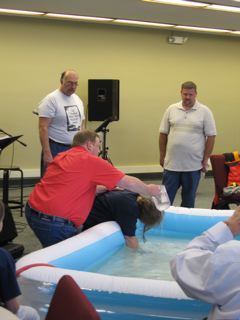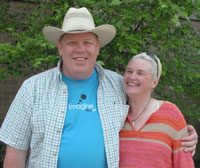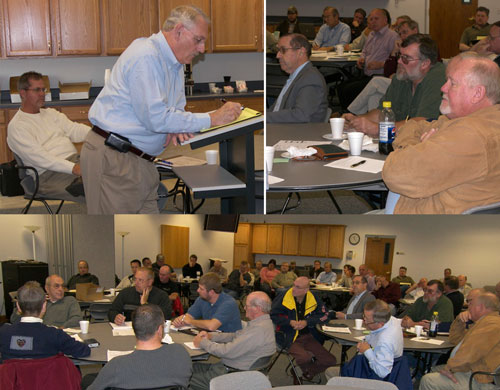08 Nov Global Ministries Logo
The Global Ministries website has been updated to incorporate the new logo throughout the site. Take a look.
(260) 356-2312
The Global Ministries website has been updated to incorporate the new logo throughout the site. Take a look.
Rhodes Grove Camp (Chambersburg, Pa.) has designated November 19 as a Day of Prayer. Mark Story, director, explains:
“Collectively our board, staff, key constituents, and hopefully you will unite with us in spirit as we prayerfully seek direction and wisdom from the Lord. The format for the day will be simple, yet specific. This is not an event that we are asking you to come to Rhodes Grove to attend. Rather, I am asking that you intentionally plan to set aside a specific amount of time on that day to pray for us, wherever you may be.
“On that day, at Rhodes Grove, I will lead our staff and available board members in a time that will include:
“In recent conversation with Bob Kobielush, the president of the national Christian Camp and Conference Association, he shared with me that these are the most difficult days for leaders of the nation’s Christian camps that he has ever seen. These are unprecedented times of unbelievable challenge but also incredible opportunity.
“We are under budget in income. We are over budget in expenses. We are experiencing the ill effects of what is perceived to be a horrid economy. We are feeling the painful pinch of trying to figure out how to make ends meet–just like many other nonprofits, and like many of you.
“We are also seeing kids come to Christ, relationships strengthened, and biblical truth declared as a result of our ministry and mission.
“We are also asking for churches that claim a relationship with us to embrace this Day of Prayer by praying for us on November 16 corporately during the Sunday morning worship time and by encouraging individuals to set aside some time on the Wednesday to follow to pray for Rhodes Grove.”
Ron Ramsey, Bishop
 Last Sunday at our Imagine This church in Grand Ledge, Mich., I was privileged to watch as 12 people were baptized.
Last Sunday at our Imagine This church in Grand Ledge, Mich., I was privileged to watch as 12 people were baptized.
Pastor Gordon Kettel baptized three people in the morning service, all from one family (a couple and a child). They were reached through a VBS which Imagine This took to a mobile home park. They set up grills, grilled hotdogs, and fed kids every night for five nights. During the evening service (the larger of the two services), they baptized another nine people.
They used a blow-up pool with maybe 18 inches of water. The water wasn’t heated. The persons being baptized sat down in the pool, and he bent them back. Gordon baptized two persons by pouring water from a pitcher over their heads.
A lot of the people who have become Christians through Imagine This had no church background. For them, tithing is a foreign concept. But in both services, Gordon explained what tithing means. That impressed me. Many times, that’s the last thing you want to talk about in a church plant, but he’s bold about it.
Ron Ramsey, Bishop
 I spent last Sunday with the Imagine This LLC congregation in Grand Ledge, Mich. Over the next few days, I want to share some of my thoughts and observations about this new United Brethren church.
I spent last Sunday with the Imagine This LLC congregation in Grand Ledge, Mich. Over the next few days, I want to share some of my thoughts and observations about this new United Brethren church.
Grand Ledge is a small bedroom community just east of Lansing. The church started a little over a year ago, on October 21, 2007. The pastor is Gordon Kettel (right, with his wife Lori).
They hold two services–at 10:00 Sunday morning and at 6 p.m. When they started a year ago, sharing a building with three other church groups, the only time available was Sunday night. The evening service attracted a number of people, so when they moved into their own building a few months ago, they decided to keep the evening service.
(more…)
 Marilyn Reeck, UB endorsed missionary serving in Honduras, sent this report about the recent flooding:
Marilyn Reeck, UB endorsed missionary serving in Honduras, sent this report about the recent flooding:
“Ten days ago, extremely heavy rains began ravaging the Honduran coastline. One area heavily hit was the area around Balfate where our daughter Chrysti (right, with her husband and children) lives. Their house is above town and was not damaged. As the Balfate river became swollen, the waters flooded sections of the town and people had to be rescued from their houses.
“There are two rivers, which must be crossed, to get to Balfate. Sections of the two bridges gave way. At least five people from that area drowned.
“One of the ladies was in a canoe as her family tried to get to safety and fell overboard. Her body was found three days later. Our son-in-law, Rigo, was part of a group of men who walked through the two rivers and many miles down to the beach and then carried the body back the same way.
“The raging rivers swept away many houses near the river’s edge and these families lost everything.
“Chrysti and Rigo have been and still are involved in the relief efforts. Up until now that has meant carrying supplies across the rivers. The bridges are now being worked on and hopefully will be ready to use soon. The rains still continue but not with the same intensity.”
Abby Waterbury, a UB endorsed missionary in Honduras, has a blog. You can keep up on what she’s doing at Ebenezer Academy.
Huntington University is hosting a one-day workshop on “Strategic Planning for the Local Church.” It’s limited to 30 persons–the first 30 to register.
Date: Tuesday, February 17, 2009
Time: 9 a.m. – 3 p.m.
Location: Habecker Dining Commons at Huntington University.
Cost: $89 (or $69 each if 3 or more persons come from the same church). Includes lunch.
CEU Credit: .5 CEU
The class will focus on:
As part of the workshop, you’ll work on ideas for your own congregation.
To register, contact Rick Upchurch at:
Phone: 740-412-3808
Email: [email protected]
You can download a PDF flyer with all the information you need.

Gary Brooks, a former UB missionary in Honduras who now lives in Ruskin, Fla., has done a lot of work with our churches in Mexico. He sent this report on October 29.
On October 22, I flew to Mexico and was met at the airport by Rev. Denis Casco, bishop of the Mexico National Conference. The next day we took a bus to Zacapu, Michoacan, where we taught a three-day pastors’ seminar
Saturday afternoon, Denis and I travelled to Valle de Santiago, Guanajuato, and our Centro Familiar Cristiano Church (Christian Family Center Church), pastored by Ramiro Negrete. Denis spoke Sunday morning, and I was the guest speaker for the 11th anniversary celebration of the church that afternoon. Some 250 people attended that afternoon service.
On Monday, we returned to Mexico City by bus. While there, Denis met with leaders of an emerging independent congregation regarding the possibility of that group joining the fellowship of other United Brethren in the Mexican Conference. Hopefully, we will soon have our first United Brethren congregation in what is said to be the second largest city in the world. Mexico City has a population of over 22 million people, the majority of whom have little or no knowledge of the Gospel.
Rev. Casco continues to labor on for the glory of the Lord in spite of needed funding. God has provided for the continuation of this ministry, but as the work expands, more support funds are needed. Keep praying for the work being done in the Mexican Conference.

About 40 people came to New Hope Church in Bryan, Ohio, on October 23 for the second of six regional meetings with Bishop Ron Ramsey. The first was held three days before in Huntington, Ind. This one included a surprise announcement.
As in Huntington, Bishop Ramsey and Pat Jones, Director of Healthy Church Ministries, explained the two referenda and various Discipline revision proposals which will come before the US National Conference next June.
Bishop Ramsey has previously made known his intention to serve only until 2009. What wasn’t known was that Pat Jones plans to leave the national office at the same time, neither staying in his current position nor allowing his name to run on the ballot for bishop. Pat made that announcement publicly at the regional meeting in Bryan.
Bishop Ramsey then led the group in a discussion about the upcoming leadership transition. He asked, “What do we need in terms of leadership?” The assembled pastors and laypersons addressed that question from various angles.
The next four regional meetings will be held:
The meetings are open to any UB ministers and laypersons. Please register in advance.
Ron Ramsey, Bishop
The Michindoh Camp and Conference Center (Hillsdale, Mich.) is now a ministry of Lenawee Christian Ministries, an organization founded by Orville and Ruth Merillat, who basically donated the camp to us in the first place. In April, I signed various papers on behalf of the denomination to transfer title of all camp assets to Lenawee for one dollar. I believe it was the right decision.
After the 2005 US National Conference, Michindoh Conference took action to dissolve (like other conferences), but entrusted the conference council with determining the fate of the camp.
Various possibilities were considered. In the spring of 2007, Gull Lake Ministries, a highly-respected camping ministry in Michigan, agreed to assume ownership of Michindoh. But they backed out, sending the conference council back to square one.
We expected that all annual conferences would have dissolved by the 2007 US National Conference. However, Michindoh Conference couldn’t dissolve until they settled the fate of the camp. With no resolution in sight, the following happened:
Camp Michindoh was not an asset that the denomination could maintain long-term. We’re not in the camping business, and don’t have the deep pockets to finance some of the needs currently confronting the camp. So I’m happy that we could turn everything over to Lenawee. Jim McClellen, from Lenawee, is serving as the camp CEO.